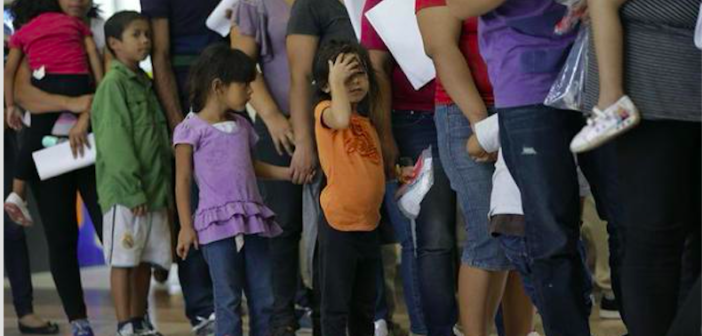Childhood is supposed to be the best and easiest time of your life. It’s supposed to be a time full of laughter and joy. This is a time where kids have no worries but to focus on school and just being a kid.
Unfortunately, for some, childhood is the complete opposite. For children of immigrants, it’s anything but pure bliss.
According to a 2017 Urban Institute study, “over 18 million children in the US are children of immigrants, meaning they have at least one foreign-born parent.”
There are unique pressures and stresses that come from having undocumented parents.
Law enforcement
“I feel like I was constantly looking over my shoulder growing up and still am,” said West Aurora High School Senior Karime Garcia.
Having a parent that was undocumented meant always being on high alert.
She explained that since her father was undocumented that meant he wasn’t able to get his driver’s license. However, that didn’t stop him from driving around without it.
“Before I was able to get my license, I was always on the lookout for police cars,” said Garcia. “It was my job as the passenger to let my dad know when I saw one.”
To her, It was almost “second nature” to look out for cops. “Until this day it’s something I still do even though I know I have a driver’s license and I’m not breaking any laws.”
“I grew up fearing the police. This is weird because they are the ones we are supposed to trust to protect us and instead it’s the complete opposite,” said Morton East High School Junior Stephanie Rodriguez.
The distrust between illegal immigrants and law enforcement has been forever growing. A 2013 study at the University of Illinois at Chicago found that “44 percent of Latinos surveyed reported are less likely to contact police officers if they have been the victim of a crime because they fear that the interaction will be used as an opportunity to inquire into their immigration status.”
The smallest thing, like being able to drive around without the risk of getting in trouble for not having a license, is taken for granted by those that are able to obtain it. Out of necessity, immigrants are sometimes forced to break the law.
Language barriers
With there being a language barrier with most undocumented parents and society, their children are forced to be their translators. “Almost everywhere we went, if there wasn’t a translator available, I had to translate for my mom,” said Rodriguez.
“I was proud to do it because I’m always willing to help my mom, but it was also nerve-racking because I had to make sure I was saying the right thing,” said Rodriguez. “I was 11 years old and trying to translate medical terms that I didn’t even know the meaning to.”
Making sure that they are giving both their parents and the other party the right information can be incredibly stressful. Not knowing a word, the children are forced to act out or vividly describe what it is they are trying to say.
“Trying to translate the body’s organs from English to Spanish and vice versa was probably the trickiest for me,” said Garcia. “I’m almost positive that I made up words just to get my point across.”
Education
For most undocumented parents, seeing their children’s accomplishments is everything to them and part of the reason why they came to the United States.
“I came to this country to give myself and my future family a better life,” said Leobardo Garcia. He is a father of two and traveled to the U.S. from Mexico at the age of 15.
For him, seeing his children achieve things that he could only dream of is the goal. “I want my children to do more and accomplish more than I ever did,” said Garcia.
According to the Center for First-Generation Student Success, “24 percent of first-generation college students had parents with no postsecondary education.”
“There is an enormous amount of pressure to continue onto college and graduate, and it can be overwhelming. I want to accomplish what my dad wasn’t able to and more, but the pressure that it puts on me can be a little too much,” said Garcia.
Deportation
One of the biggest stresses for these children is the possibility of their parents being deported.
Last August, 680 undocumented immigrant workers were detained across six different cities in Mississippi. The raids took place while their children were attending their first day of school.

Photo labeled for reuse
Videos quickly surfaced of the children pleading for their parents to be released. An 11-year-old little girl was shown pleading to the “government” to release her father.
“I need my dad. He’s not a criminal.”
She is seen on the video pleading through tears. Pictures surfaced just as fast showing children sitting all together waiting to hear news about their parents.
“It was upsetting to see that these innocent children who instead of coming home and telling their parents all about their first day, were instead shedding tears because they weren’t sure if they would see them again,” said Garcia. “I didn’t even want to imagine what it must have felt like to come out of school and not see your parents.”
“My father being deported is one of my biggest fears,” said Garcia. “I feel like I’m just waiting to get a phone call to tell me that my father is being detained and deported.”
Immigrants come to the United States to achieve the “American dream,” to better themselves and their families. They are not always able to accomplish that themselves but hope to see it done in future generations. Future generations are left to finish what their families have started.

